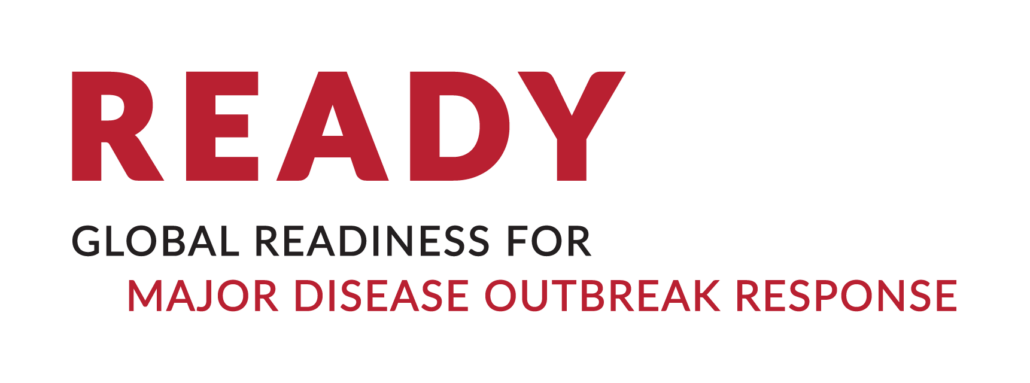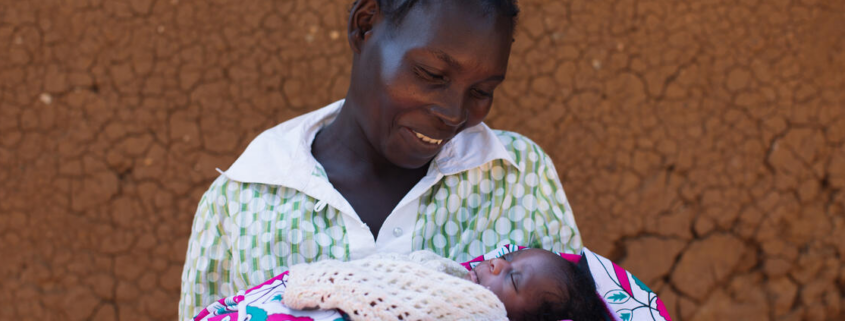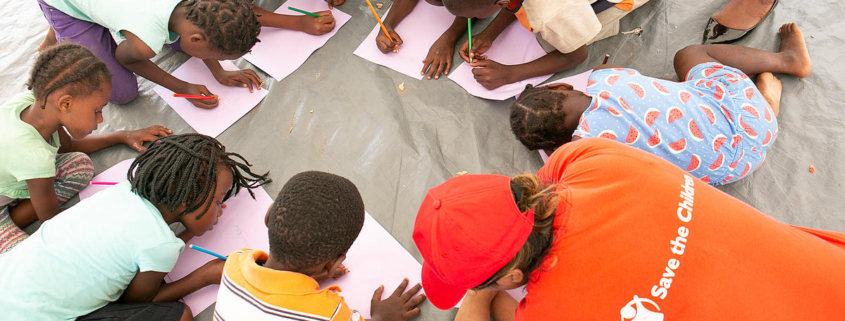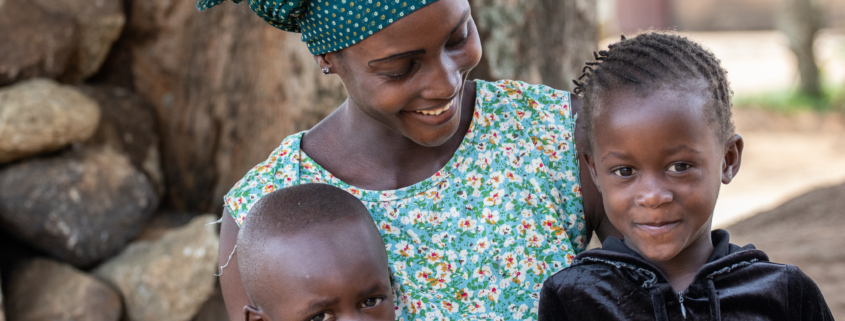READY posts updates here—news, announcements, and other updates on the initiative.
When Outbreaks Occur, the Reproductive Health Needs of Women and Girls Do Not Stop!
12 JULY 2023 | 08:00 EST / 13:00 BST / 15:00 EAT | Global Launch of Operational Guidance for Sexual, Reproductive, Maternal, and Newborn Health Services in Infectious Disease Outbreaks
—
Watch the recording:
–
Sexual, reproductive, maternal, and newborn health (SRMNH) services are lifesaving, essential, and time critical. During infectious disease outbreaks, health systems are disrupted and can collapse as resources are diverted to the response, while the SRMNH needs of the community persist.
READY, together with the Inter-Agency Working Group for Reproductive Health in Crises (IAWG) and the International Rescue Committee, has developed two companion guidance documents to support health actors to maintain critical SRMNH services during infectious disease outbreaks in humanitarian settings and to ensure SRMNH considerations are integrated within outbreak readiness and response.
In the global webinar launch on July 12th, 2023, panelists from International Rescue Committee, UNICEF, and Population Reference Bureau shared their experiences providing SRMNH services during an outbreak and discussed how these guidance documents can be used in the preparedness and response phases to ensure health services for women and girls are maintained.
Moderators:
- Janet Meyers, Senior Humanitarian Advisor for Reproductive Health, Save the Children International: Janet was involved in developing the two guidance documents on Sexual and Reproductive Health and Rights and Maternal Newborn Health during Infectious Disease Outbreaks.
- Maria Tsolka, Senior Humanitarian Reproductive Health Advisor, Save the Children International: Maria is the lead for country level trainings on the two guidance documents on Sexual and Reproductive Health and Rights during Infectious Disease Outbreaks.
Presenter: Alison Greer, Senior Advisor at the Interagency Working Group on Reproductive Health in Crises. Alison works at the IAWG secretariat.
Panelists:
- Fatima Gohar, Maternal, Newborn & Adolescent Health Specialist, UNICEF: Fatima has worked with the UNICEF Eastern and Southern Africa Regional Office since 2017, with extensive experience spanning two decades across Africa, Asia, and the Middle East. Her role involves providing strategic and technical support to 21 countries in the region, assisting them in implementing and expanding high-impact interventions in both development and humanitarian contexts. Fatima is a passionate advocate for providing quality healthcare services to all women and children, regardless of their circumstances. She firmly believes that timely access to quality healthcare is a fundamental right of every mother and newborn.
- Reena Khaiya Atuma, Health System Strengthening Technical Officer, Population Reference Bureau: Reena has a background in health system strengthening and public finance management and with over seven years of experience in public budget and policy analysis, she has developed expertise in various aspects of the field. Her work primarily focuses on conducting analyses of national and subnational health budgets, which involves assessing the allocation and utilization of financial resources in the health sector. In addition to budget analysis, Reena is also proficient in capacity building of non-state actors in public finance management. She is skilled in integrating gender considerations into budgeting processes to ensure that the needs and priorities of both women and men are considered. Reena has a bachelor’s degree in Sociology with Information Technology from Maseno University. She is currently pursuing a master’s degree in health economics and policy at the University of Nairobi.
- Dr. Abu Syem Md Shahin, Senior Health Coordinator, International Rescue Committee (IRC): Dr. Shahin provides strategic vision and technical leadership to the health program for the Rohingya response in Cox’s Bazar, as well as in disaster-prone areas of Bangladesh. Prior to joining IRC, Dr. Shahin held a position where he provided technical support to all health projects within Plan International’s Health Program in Bangladesh. His responsibilities encompassed various aspects of health, with a particular focus on Maternal, Newborn, and Child Health, Sexual and Reproductive Health, and Primary Healthcare. Additionally, he has served as an adjunct faculty member in several universities, where he has shared his knowledge and experience in the field of Public Health. Dr. Shahin has achieved an MSc in Public Health with distinction, specializing in Global Health and Health Promotion, from the University of East London, UK.
Access the guidance documents below (available in English, French, Spanish, and Arabic):
- Sexual and Reproductive Health and Rights during Infectious Disease Outbreaks: Operational Guidance for Humanitarian and Fragile Settings
- Maternal and Newborn Health during Infectious Disease Outbreaks: Operational Guidance for Humanitarian and Fragile Settings
—
Subscribe to READY’s email list to receive future announcements about training opportunities, webinars, and other updates
—
This event was hosted by the READY initiative, led by Save the Children, and funded by the USAID Bureau for Humanitarian Assistance.
Communicating with Children During Infectious Disease Outbreaks
April 5, 2023 | 15:30-16:30 East Africa / 07:30-08:30 EST / 12:30-13:30 GMT
This was the third webinar in the Child Protection and Health Integration During Infectious Disease Outbreaks series, Communicating with Children During Infectious Disease Outbreaks: Key considerations for child-centered risk communication and community engagement (RCCE).
During this one-hour webinar, regional and global experts discussed key considerations for child-centered RCCE, followed by a discussion on challenges and lessons learned from recent outbreaks.
Watch the recording:
This event was hosted by the READY initiative, led by Save the Children, and funded by the USAID Bureau for Humanitarian Assistance.
Integrating Child Protection into the Design and Operation of Isolation and Treatment Centers
February 1, 2023 | 15:30-16:30 East Africa / 07:30-08:30 EST / 12:30-13:30 GMT
This was the second webinar of the Child Protection and Health Integration During Infectious Disease Outbreaks series, Integrating Child Protection into the Design and Operation of Isolation and Treatment Centers: Key considerations and adaptations to health facilities during major disease outbreaks.
During this one-hour webinar, regional and global experts discussed why child protection considerations are needed in the design, layout, and operation of isolation and treatment centers; described how child protection needs can be integrated; and reflected on lessons learned from recent outbreaks.
Subscribe to READY’s email list to receive future announcements about training opportunities, webinars, and other updates.
Watch the recording:
Moderator
Sarah Collis Kerr, Lead Technical Advisor, READY, Save the Children: Sarah Collis Kerr is a humanitarian health professional specializing in emergency outbreak response and health program coordination in crisis settings. She holds an MSc in Control of Infectious Diseases from the London School of Hygiene and Tropical Medicine and a BSc in Nursing. Sarah has worked in several humanitarian contexts and outbreaks all over the world including Sierra Leone and Rwanda for Ebola; Northern Nigeria; Samoa during the measles outbreak; Greece for the migrant/refugee crisis; and Cox’s Bazar for the Rohingya COVID-19 response. Before joining the READY initiative, she was the Regional Health Delegate for the Red Cross in Middle East North Africa. Sarah is deeply passionate about protecting the right to health for all, specifically women and girls. She believes strongly in the need to empower affected communities and local organizations, whilst strengthening cross-sectoral preparedness and capacity for outbreak response.
Panelists/Presenters
- Nidhi Kapur, Child Protection Specialist, Independent Consultant: Nidhi Kapur is a protection, gender, and inclusion specialist with fifteen years of field-based experience. Motivated by a strong interest in the complexities of programming in conflict and post-conflict zones, Nidhi has been deployed to various countries as part of emergency response teams. She has worked on a multitude of issues with and on behalf of children and their communities, including in relation to infectious disease outbreaks. In addition to her work with READY to improve collaboration between the health and child protection sector, she has been commissioned by the Alliance for Child Protection in Humanitarian Action to co-author mini-guides for field practitioners working in a variety of outbreak settings.
- Jean Syanda, Humanitarian Child Protection Advisor, Global Center Humanitarian Technical Team, Save the Children: Jean is the Child Protection (CP) lead for READY and oversees the Child Protection unit of the United States (US)-funded portfolio of Save the Children US for East and Southern Africa, the Middle East and Eurasia, and a few countries in Asia. She has 15 years of experience in humanitarian work with a focus on general protection, gender-based violence (GBV), and CP programming, having worked in many humanitarian crises and conflict-affected zones. She worked with refugees, internally-displaced persons (IDPs), and vulnerable communities, with a strong emphasize on establishing, creating, and strengthening human rights access systems to populations of concern. Her most recent work included providing technical guidance and support to and overseeing Protection projects in Nigeria, South Sudan, Yemen, Ethiopia, Nigeria, Iraq, Jordan, and Kenya.
- Dr. Ayesha Kadir, Senior Humanitarian Health Advisor, Save the Children: Ayesha Kadir is a pediatrician and public health researcher. Her work is focused on understanding and meeting the needs of children and families in deprivation and crisis settings. Before leading the humanitarian health team at Save the Children UK, Dr. Kadir worked in pediatric emergency medicine and social pediatrics in Europe and in humanitarian settings. Her research and advocacy focus on the effects of migration, armed conflict, and other forms of violence on children and families, and in finding effective ways to protect and promote child and family health, wellbeing, and rights. Dr. Kadir has worked in east, west, and southern Africa, the Middle East, western and eastern Europe, and the United States with international NGOs, universities, governments, and the World Health Organization.
- Nureyan Zunong, Senior Humanitarian Health Advisor, Save the Children: Nureyan Zunong is a humanitarian health professional specializing in health program planning and implementation in humanitarian settings. Nureyan has over 20 years of public health experience in both emergency and development contexts. She joined Save the Children in 2002 and worked in several key health positions in politically sensitive, culturally diverse, and geographically harsh conditions. She has managed multiple responses to outbreaks, including Cholera, Ebola, Polio, Yellow Fever, and Measles. Nureyan worked to support the health system and emergency response in Ethiopia, South Sudan, the Philippines, Sierra Leone, Liberia, Nepal, DRC, Turkey, Northeast Syria, Ukraine, Kenya, and Mozambique. As a senior humanitarian health advisor, she has diverse experience ranging from technical advice to country offices for ongoing responses and health system strengthening to emergency and outbreak preparedness and response. Central in her work is the high focus on safe and quality service provision which includes child safeguarding and child protection in health programming. Nureyan has a Medical Bachelor’s degree from Shanghai Medical University and a Master of Public Health degree from Tulane University.
- Dr. Charls Erik Halder, National Program Officer (Health Coordination), Migration Health Department, International Organization for Migration (IOM): Dr. Charls Erik Halder is a medical doctor and global health specialist who has worked with the International Organization for Migration (IOM) for the past five years. He has ten years of experience in health response in both the humanitarian and development sectors, with expertise in health coordination, primary health care, epidemic and disaster preparedness and response, information management and surveillance, quality improvement, communicable and non-communicable disease control, and infection prevention and control. He has been supporting the humanitarian health response in Cox’s Bazar for Rohingya refugees for more than seven years. He led the health sector mobile medical team technical working group and co-chaired the Health Sector Emergency Preparedness and Response Technical Committee. During the outbreaks of diphtheria, COVID-19, and dengue, he was actively involved in designing and implementing the outbreak preparedness and response interventions in Cox’s Bazar.
- Dr Hans-Joerg Lang, Pediatrician; Lecturer, Global Child Health, University Witten/Herdecke, Germany; Advisor for Pediatrics and Critical care for The Alliance for International Medical Action (ALIMA): Hans-Jörg Lang conducted his medical studies in Freiburg, Germany, and completed training in pediatric intensive care medicine in the UK. For several years he worked with development and humanitarian organizations in Sub-Saharan Africa and Afghanistan (e.g., MSF, ALIMA, GIZ/CIM, DED). In this context he contributed to training programs and research projects. Hans-Jörg Lang participated in Ebola virus (EBOV) outbreak responses in DRC (2019/2020), Guinea (2021), and the recent Sudan EBOV outbreak in Uganda (2022). In the past few years he has been involved in several activities supported by WHO, such as Ebola training programs, Ebola guideline development group, and medical oxygen access scale up. Hans-Jörg Lang also participates in an initiative of WHO and WFP to design a mobile, rapidly deployable treatment unit for highly infectious diseases (INITIATE2).
Subscribe to READY’s email list to receive future announcements about training opportunities, webinars, and other updates.
This event was hosted by the READY initiative, led by Save the Children, and funded by the USAID Bureau for Humanitarian Assistance.




